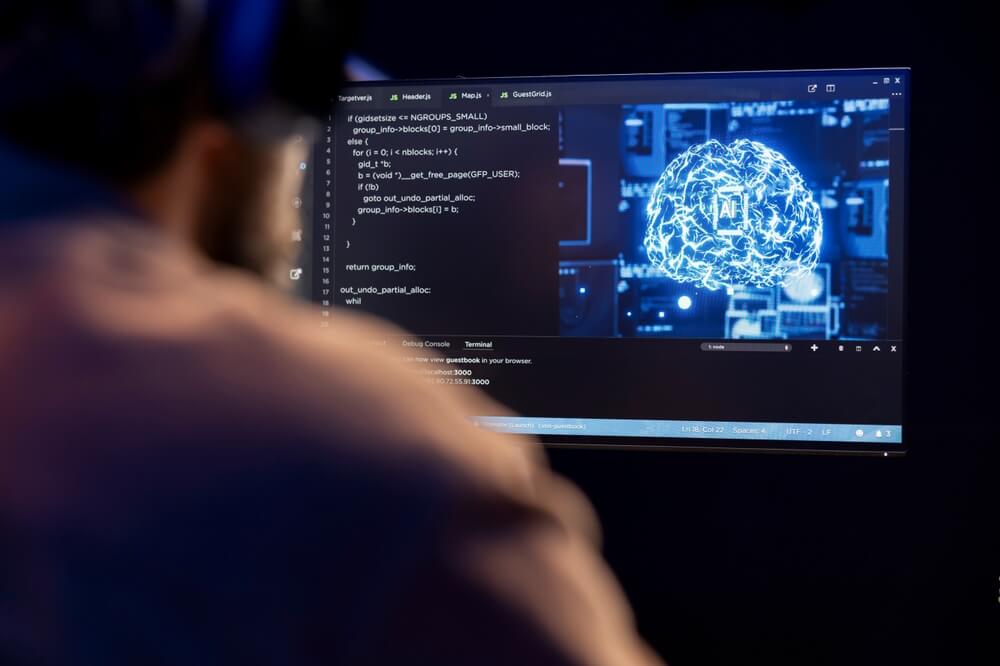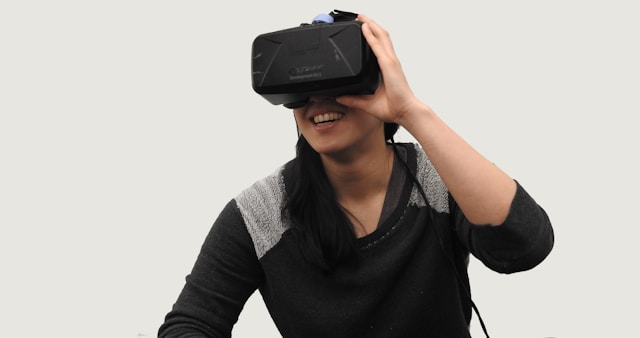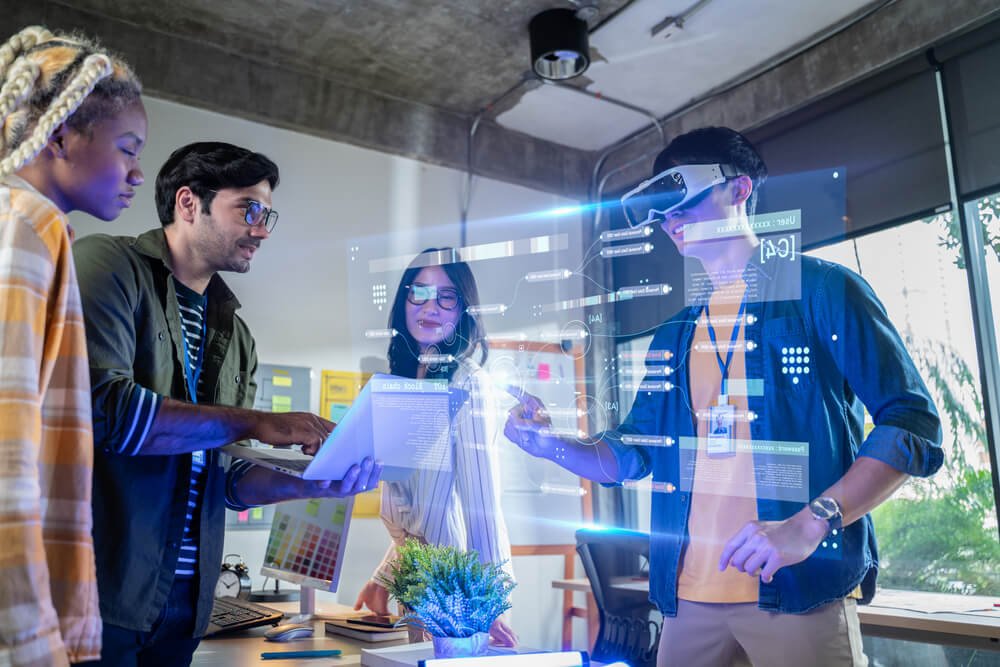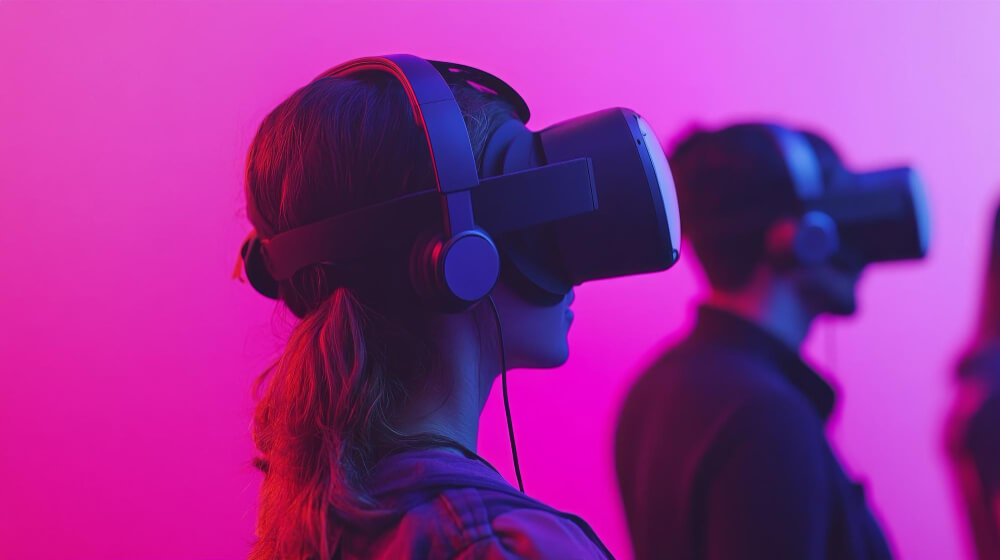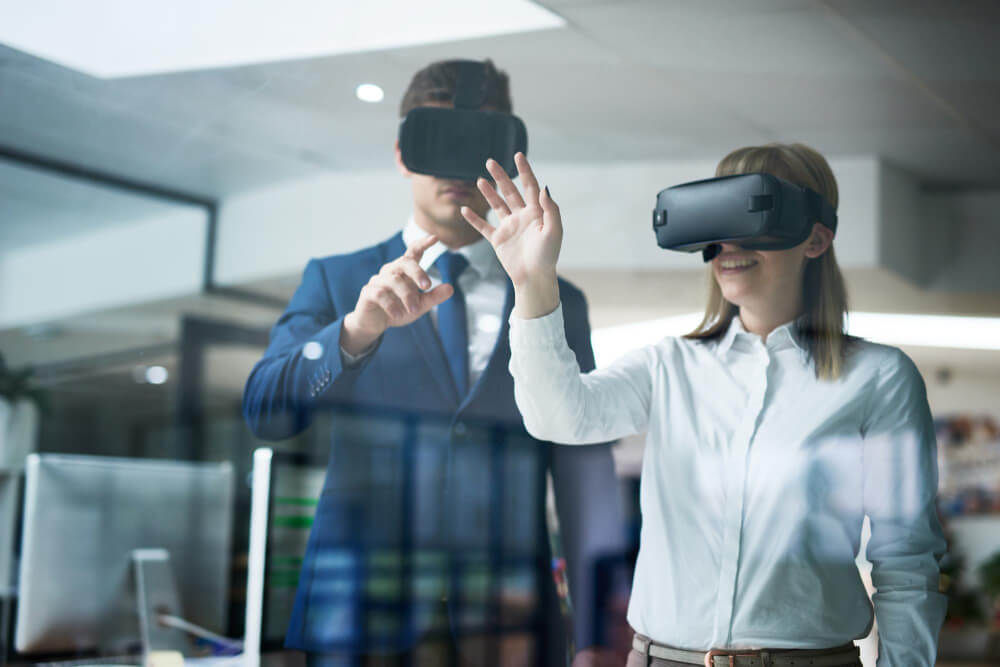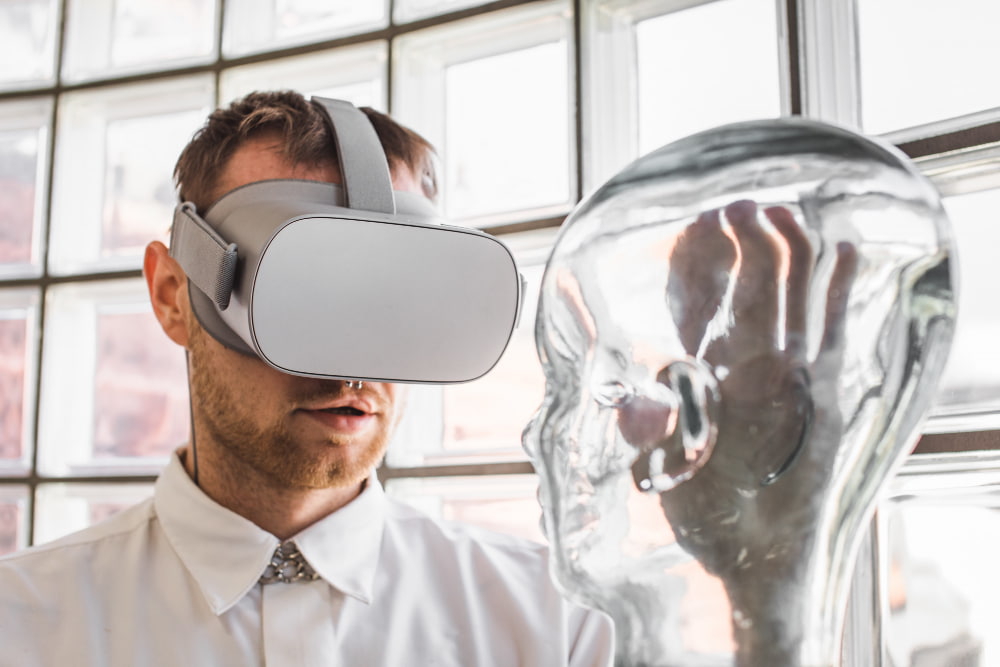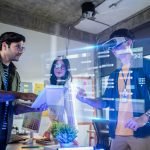The Role of VR Training in Modern L&D Departments
Table of Contents:
Virtual Reality (VR) is no longer just a futuristic gaming concept; it has become a powerful business tool in Learning and Development (L&D) departments across various industries. By creating immersive, hands-on experiences, VR transforms how employees learn, retain knowledge, and develop skills. Suppose you’re wondering why VR is gaining traction in corporate learning. In that case, this article will outline the real-world advantages and demonstrate how to leverage the benefits of VR training for corporate learning to build a more capable workforce.
Key Takeaways
- Immersive learning drives results: VR boosts knowledge retention, motivation, and engagement compared to traditional training methods.
- Safe hands-on practice: Employees can simulate hazardous or complex tasks in a risk-free environment, improving confidence and skill transfer.
- Personalized and adaptive: VR training adapts to individual learner needs in real time, creating more effective development experiences.
- Strategic advantage for L&D: Consistent training across locations, faster onboarding, and real-time feedback accelerate employee readiness.
- Data-driven optimization: Analytics from VR sessions help L&D identify skill gaps, measure performance, and refine training programs.
- Challenges can be overcome: Initial investment and content creation barriers are mitigated through scalable solutions and expert partnerships.
- Future-ready approach: With advancing technology, AI-driven personalization and enhanced analytics will further increase VR’s impact in workforce development.
Why VR Training Benefits Corporate Learning Like No Other
VR training offers an unmatched level of engagement and interactivity, surpassing traditional e-learning and classroom sessions. This results in:
- Increased knowledge retention: Immersive experiences create stronger memories, enabling employees to recall key concepts more effectively over time.
- Safe hands-on practice: Employees can safely simulate complex or hazardous tasks, reducing risk while gaining real-world experience.
- Personalized learning: VR environments can adapt in real time to individual learner needs, making training more effective.
- Boosted motivation and engagement: Gamified, immersive scenarios keep learners interested and committed to their development.
These benefits make VR a game-changer for corporate learning initiatives, especially in fast-paced or highly technical fields.
Virtual Reality in Employee Development: A Strategic Advantage
L&D departments today face constant pressure to deliver training that’s not only effective but also scalable and cost-efficient. VR addresses these challenges by enabling:
- Consistent training across locations: Remote employees get the same immersive experience as those onsite, ensuring uniform skills development.
- Faster onboarding: New hires can quickly gain practical experience and confidence in their roles without relying solely on shadowing or classroom sessions.
- Real-time feedback: VR systems can track performance and provide instant coaching, accelerating skill mastery.
- Data-driven insights: L&D teams gain valuable analytics to optimize training programs and proactively address skill gaps.
Integrating VR into employee development programs aligns learning with business goals, helping companies stay competitive.
Overcoming Challenges to Implement VR Training
While the benefits are clear, L&D teams may face hurdles like initial investment costs, content creation, and technology adoption. Partnering with experienced VR providers can ease these challenges by offering:
- Tailored content designed to meet specific training objectives
- Scalable solutions that grow with your organization
- Seamless integration with existing learning management systems (LMS)
By investing wisely and leveraging expert guidance, companies can maximize the ROI of VR training.
Looking Ahead: The Future of VR in L&D
The use of virtual reality in employee development is only set to increase as technology advances and becomes more accessible. Innovations such as AI-driven personalization and expanded analytics will further enhance the impact of VR on learning outcomes.
Forward-thinking organizations that adopt VR training today will be better positioned to build agile, skilled workforces that are ready to meet tomorrow’s challenges.
Conclusion
The benefits of VR training for corporate learning are too significant to ignore. From enhanced engagement and retention to scalable and personalized development, VR is revolutionizing how learning and development (L&D) departments prepare employees for success. By integrating VR into your learning strategy, you’re investing in a more effective, future-ready workforce.
You may also read: How to Scale VR Training Programs?
What is VR training and why is it relevant for corporate learning?
VR training uses immersive, interactive simulations to help employees learn by doing. It’s relevant because it boosts engagement, retention, and real-world skill development better than traditional e-learning or classroom-only formats.
What are the main benefits of VR training for L&D?
Key benefits include increased knowledge retention, safe hands-on practice for complex or hazardous tasks, personalized learning paths, and higher motivation through immersive, gamified experiences.
How does VR support large, distributed workforces?
VR delivers consistent, standardized training across locations. Remote and onsite employees experience the same scenarios, ensuring uniform skill development and reducing variability in training quality.
Can VR accelerate onboarding and skill mastery?
Yes. New hires can practice key tasks in realistic simulations and receive instant feedback. This shortens time-to-competence and builds confidence without relying solely on shadowing or classroom sessions.
How do L&D teams measure the impact of VR training?
VR platforms capture performance analytics such as completion rates, time on task, error rates, and assessment scores. These data inform program optimization and can be tied to business KPIs to demonstrate ROI.
What challenges might organizations face when adopting VR?
Common hurdles include initial investment, content creation capacity, and change management. Working with experienced VR providers helps with tailored content, scalable solutions, and smooth LMS integration to maximize ROI.
How does VR integrate with existing learning systems (LMS)?
Many VR solutions support LMS integration for enrollment, tracking, and reporting. This lets L&D manage VR modules alongside other courses, maintaining a unified learning tech stack and analytics view.
What is the future outlook for VR in Learning & Development?
Adoption is set to grow as costs fall and capabilities expand. Expect AI-driven personalization and richer analytics to further improve outcomes, helping organizations build agile, skilled workforces.

Author: Rafał Siejca
Rafal has over twenty years of corporate experience, including roles at Millennium Bank, Comarch, and leading software teams at PZU, one of Europe’s largest insurance companies. As one of Poland’s few true VR experts with a decade of experience, he ensures timely, high-quality project delivery as CEO and CTO.

